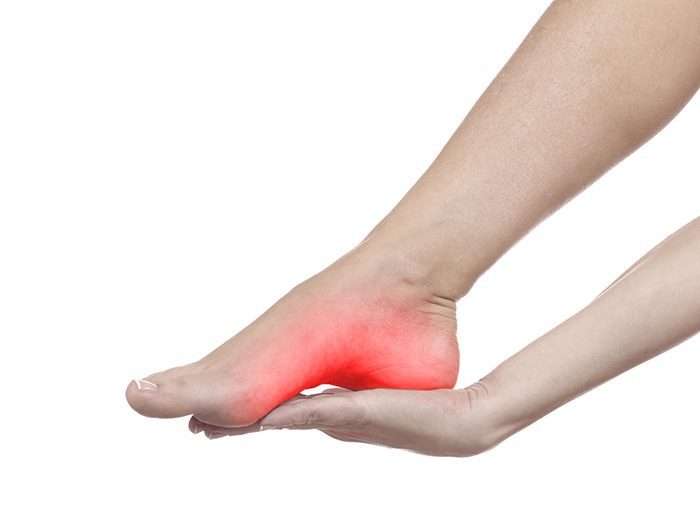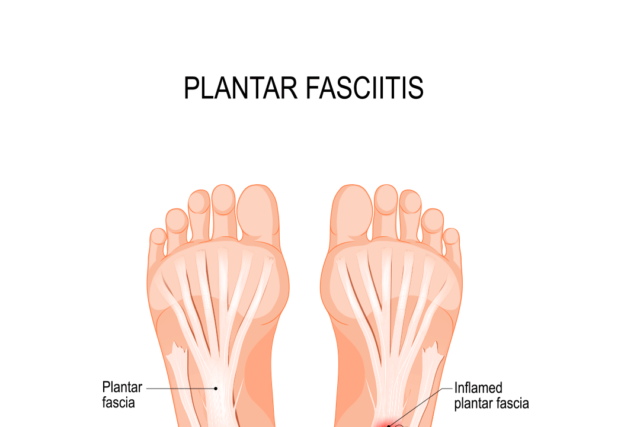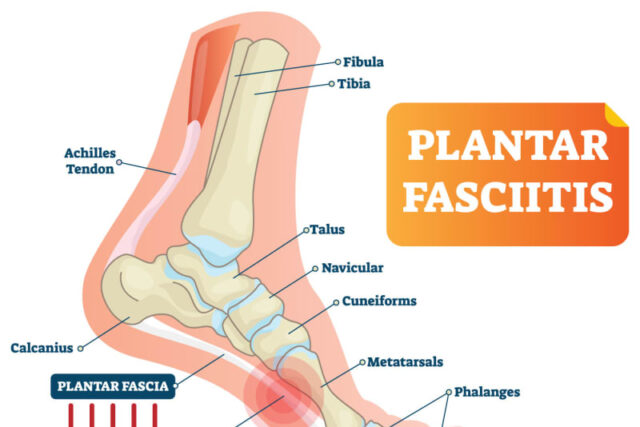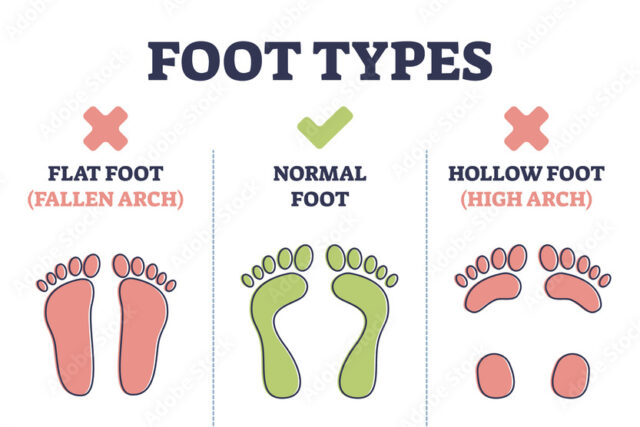Discover the ultimate guide to Exercises for Plantar Fasciitis designed to strengthen, stretch, and soothe your feet. Dive into our expertly curated routines that promise to alleviate pain, enhance flexibility, and support your foot’s structure, ensuring lasting relief and improved foot health.

Introduction
Navigating through the discomfort of plantar fasciitis requires more than just temporary fixes; it demands a dedicated approach to strengthening and stretching the foot’s intricate musculature. This guide introduces a series of targeted exercises, each crafted to address the root causes of plantar fasciitis by enhancing foot stability, flexibility, and overall health. Embark on a journey towards pain-free feet with these expert recommendations.
Table of Contents
Top Exercises for Plantar Fasciitis to Alleviate Pain

To promote foot health and prevent conditions like plantar fasciitis, incorporating targeted exercises into your daily regimen is key. These exercises aim to strengthen foot muscles, enhance flexibility, and support the foot’s overall structure. Below is a detailed guide to each exercise, including their objectives and instructions:
1. Toe Curls
Goal: Strengthen the muscles under your feet, particularly those supporting your arches, to improve stability and minimize plantar fasciitis risk.
How to Do It:
- Sit with your feet flat and a towel in front of them.
- Use your toes to pull the towel towards you, then push it away.
- Complete 3 sets of 10-15 reps for each foot.
Pro Tips: Ensure your heel stays down to focus the exercise on your toes and arch. Gradually increase resistance to challenge your muscles without overdoing it.
2. Calf Stretches
Goal: Alleviate strain on your Achilles tendon and plantar fascia by keeping calf muscles flexible, reducing foot strain risk.
How to Do It:
- Stand facing a wall, hands on the wall at eye level.
- Step one foot back, pressing the heel down.
- Bend the front knee, leaning into the wall until you feel a stretch in the back leg’s calf.
- Hold for 30 seconds, switch legs, and repeat 2-3 times per leg.
Pro Tips: Keep your back straight and weight evenly distributed. Ensure the back foot’s heel remains on the ground.
3. Plantar Fascia Stretch
Goal: Directly relieve tension in the plantar fascia to prevent tightness and pain.
How to Do It:
- Cross one leg over the other knee.
- Grasp the toes of the crossed leg and gently pull towards you.
- Hold for 30 seconds, switch feet, and repeat 2-3 times per foot.
Pro Tips: Stretch gently to avoid overstretching. Focus on feeling a stretch along your foot’s bottom.
4. Achilles Tendon Stretch
Goal: Reduce tension in the Achilles tendon and calf muscles, connected to the plantar fascia, to prevent symptom exacerbation.
How to Do It:
- Stand on a step with the balls of your feet on the edge, heels off.
- Lower your heels below the step level to stretch.
- Hold for 30 seconds, lift your heels, and repeat 2-3 times.
Pro Tips: Use a stable step and ease into the stretch to avoid sudden movements.
5. Marble Pickups
Goal: Improve the strength and dexterity of your foot’s small muscles.
How to Do It:
- Sit and place 20 marbles on the floor.
- Pick up each marble with your toes and transfer it to a bowl.
- Switch feet after completing the set.
Pro Tips: Start with fewer marbles if needed and ensure you’re seated comfortably.
6. Towel Stretch
Goal: Alleviate stiffness in the plantar fascia, Achilles tendon, and calves, especially upon waking.
How to Do It:
- Sit with legs extended, loop a towel around one foot.
- Pull the towel towards you, keeping your knee straight.
- Hold for 15-30 seconds, repeat 2-3 times per foot, ideally in the morning.
Pro Tips: Keep your knee straight to extend the stretch to your calf. Adjust the towel’s tension for comfort.
7. Ankle Circles
Goal: Boost circulation and decrease swelling in the feet, aiding in pain relief.
How to Do It:
- Lie back with legs raised and rotate your ankles in circles.
- Perform smoothly for 2-3 minutes, several times a day.
Pro Tips: Focus on a full range of motion for maximum circulation benefits.
8. Seated Foot Roll
Goal: To massage the plantar fascia, providing relief from pain and tightness by rolling the foot over an object.
How to Do It:
- Sit and place a tennis ball or foam roller under your foot.
- Roll it back and forth from heel to toes.
- Continue for 2-3 minutes per foot, once or twice daily.
Pro Tips: Adjust the pressure to avoid pain. Try different objects to see which provides the best relief.
9. Arch Lifts
Goal: Strengthen the muscles within your arch, enhancing foot stability.
How to Do It:
- Stand with feet hip-width apart.
- Lift your arches by rolling your weight to the outer edges of your feet.
- Hold for a few seconds, then release.
- Repeat for 2-3 sets of 10-15 reps daily.
Pro Tips: Focus on movement quality. Ensure a non-slip standing surface.
10. Heel Raises
Goal: Strengthen the muscles around the Achilles tendon, boosting ankle stability.
How to Do It:
- Stand with support, lifting your heels off the ground onto your toes.
- Hold at the top, then lower slowly.
- Do 2-3 sets of 10-15 reps daily.
Pro Tips: Control the descent to effectively engage muscles. Use support for balance.
11. Short Foot Exercise
Goal: Strengthen the foot’s intrinsic muscles for better arch support and stability.
How to Do It:
- Sit or stand with feet flat.
- Shorten your foot by pulling the ball towards your heel without curling toes.
- Hold for 5-10 seconds, then release.
- Complete 2-3 sets of 10 reps per foot.
Pro Tips: Visualize pulling a string from your heel to create the arch.
12. Toe Spread and Press
Goal: Enhance foot muscle control and strength, improving toe spread and grip.
How to Do It:
- Sit with feet flat.
- Spread your toes wide, then press them into the floor.
- Hold for a few seconds, then relax.
- Aim for 2-3 sets of 10 reps.
Pro Tips: Ensure a full toe spread without forcing uncomfortably.
13. Toe Extension
Goal: Stretch and strengthen foot muscles, easing plantar fascia tension.
How to Do It:
- Sit and cross one leg over the other.
- Gently pull back on the toes, focusing on the big toe.
- Hold for 15-30 seconds, repeat 2-3 times per foot.
Pro Tips: Apply gentle pressure, focusing on the stretch.
14. Wall Push-ups/Foot Stretch
Goal: Stretch calf muscles and Achilles tendon to relieve and prevent plantar fasciitis pain.
How to Do It:
- Stand facing a wall, one foot behind the other.
- Bend the front knee, keeping the back heel down.
- Hold for 15-30 seconds, then switch legs.
- Perform 2-3 reps per leg.
Pro Tips: Adjust foot placement for comfort and effectiveness.
15. Dynamic Calf Stretch
Goal: Promote flexibility in calf muscles and Achilles tendon, reducing tension.
How to Do It:
- Face a support, stepping one foot back into a lunge.
- Bend the front knee, lifting the back heel, then lower it.
- Repeat for 10-15 reps before switching legs.
Pro Tips: Ensure smooth transitions to maintain engagement and prevent injury.
16. Balance and Reach Exercises
Goal: Enhance balance and proprioception, stabilizing feet and ankles.
How to Do It:
- Stand on one foot, reaching forward or to the side.
- Hold for a few seconds, then return to start.
- Do 10 reps on each side, then switch feet.
Pro Tips: Begin near support and focus on controlled movements.
Incorporating these exercises into your daily routine can significantly alleviate and prevent plantar fasciitis symptoms. Consistency is vital for progress, so make these exercises a regular part of your foot care regimen for optimal results.
FAQ Section
| Q: How often should I perform these plantar fasciitis exercises? |
| A: For optimal results, aim to complete these exercises daily, especially during periods of acute discomfort. Consistency is key to achieving lasting relief. |
| Q: Can these exercises cure plantar fasciitis? |
| A: While these exercises are designed to significantly alleviate pain and improve foot function, they are most effective as part of a comprehensive treatment plan that may include rest, proper footwear, and possibly medical intervention for severe cases. |
| Q: Are there any precautions I should take while performing these exercises? |
| A: Always listen to your body and avoid any movements that cause pain beyond a mild stretch. If you’re unsure about an exercise or have severe plantar fasciitis, consult with a healthcare professional before starting. |
| Q: How quickly can I expect to see improvements in my symptoms? |
| A: Improvement timelines vary based on the severity of your condition and the consistency of your exercise routine. Some individuals may notice relief within a few weeks, while others may require a longer period to experience significant changes. |
Conclusion
Plantar fasciitis, though challenging, doesn’t have to dictate the quality of your daily life. By integrating these carefully selected exercises into your daily routine, you can take proactive steps towards mitigating pain, improving foot health, and regaining the freedom of movement. Remember, the journey to recovery is a marathon, not a sprint. With patience, persistence, and the right approach, you can achieve lasting relief from plantar fasciitis and enjoy a more active, pain-free lifestyle.



MOST COMMENTED
Animal-Based Proteins / Casein Protein / Dietary Protein / High-Protein Diets / Pea Protein / Plant-Based Proteins / Protein / Protein Deficiency / Protein Supplements / Proteins / Whey Protein / Whey Proteins
Is Protein Powder Safe for Teenagers and Children?
Animal-Based Proteins / Casein Protein / Dietary Protein / High-Protein Diets / Pea Protein / Plant-Based Proteins / Protein / Protein Deficiency / Protein Supplements / Proteins / Whey Protein / Whey Proteins
Unlock the Power of Proteins for Optimal Gut Health
Multivitamin
Total Health: Multivitamin for Active Lifestyles
Multivitamin
WellnessFusion: Complete Multivitamin Support
Dietary Supplement
Revitalize Your Health: The Magic of Red Yeast Rice Capsules
Foot care / Foot Health
Revitalize Your Foot Care Routine: Essential Tips for Optimal Foot Health
Foot Problem / Diabetics / Foot Health
Diabetics: Mastering Footwear Selection for Enhanced Foot Health and Ultimate Comfort
Exercises and Footwear Tips for Hammertoe Relief / Foot care / Foot Health / Foot Pain / Foot Problem / Hammertoes
Unlock Effective Exercises and Footwear Tips for Hammertoe Relief
Hammertoes / Foot Health / Foot Pain / Foot Problem
Unlock Relief: Essential Guide to Hammertoes Causes, Symptoms, and Treatments
Foot Problem / Foot Health
Revolutionize Your Recovery: Natural Remedies for Plantar Fasciitis – Fresh Home Keepers